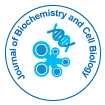Short Note on Enzymology
Received Date: Jul 10, 2023 / Published Date: Jul 03, 2024
Abstract
Enzymology is a scientific discipline that explores the intricate mechanisms and functions of enzymes, which are essential catalysts in biological systems. Enzymes play a vital role in facilitating biochemical reactions by lowering the activation energy required for these reactions to occur. This abstract provides a concise overview of enzymology, highlighting its significance, historical milestones, classification and recent advancements. Understanding enzymology is crucial for comprehending the inner workings of biological processes and developing interventions for enzyme related diseases. The field traces its origins to the 18th and 19th centuries, with pivotal contributions from scientists like Antoine Lavoisier, Louis Pasteur and Eduard Buchner. These early researchers laid the foundation for the modern study of enzymes. Enzymes are classified into different classes based on the type of reactions they catalyze. These include oxidoreductases, transferases, hydrolases, lyases, isomerases, and ligases. Each class exhibits unique structural and functional characteristics, enabling specific catalytic functions. The mechanisms by which enzymes catalyze reactions involve the formation of an enzyme substrate complex, where the enzyme's active site interacts with the substrate to facilitate the conversion of reactants into products. Various catalytic strategies, such as acid base catalysis, covalent catalysis and metal ion catalysis, are employed by enzymes to enhance reaction rates and selectivity.
Keywords: Enzyme mechanism; Active site; Enzyme inhibition; Enzyme activation; Enzyme engineering
Citation: Hopers H (2024) Short Note on Enzymology. J Biochem Cell Biol 7:259.
Copyright: © 2024 Hopers H. This is an open-access article distributed under the terms of the Creative Commons Attribution License, which permits unrestricted use, distribution and reproduction in any medium, provided the original author and source are credited.
Share This Article
Recommended Journals
Open Access Journals
Article Usage
- Total views: 477
- [From(publication date): 0-2024 - Apr 05, 2025]
- Breakdown by view type
- HTML page views: 288
- PDF downloads: 189
